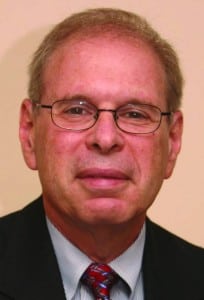It is with significant sadness that I mark the loss of a cherished colleague. I have been aware of Lee Shai Weissbach’s groundbreaking work since my grad student days. Among his colleagues in the vibrant field of Jewish Studies, he enjoys a stellar reputation for his energy and enthusiasm for the historical profession, his eagerness to engage with colleagues no matter what their specialization, and his ability to make connections and forge intellectual ties across the boundaries of field and discipline. Indeed, for anyone active in the field of Jewish studies, he represents a truly exemplary model even though that specialization is only a part of his myriad accomplishments over a truly expansive career.
For instance, he was trained at Harvard as an historian of French history; his 1989 book Child Labor Reform in Nineteenth-Century France: Assuring the Future Harvest addressed the crucial cultural changes in the view of children that led to early child labor laws.
But (perhaps in part owing to his studies with the late Yosef Yerushalmi, the preeminent Jewish historian of recent generations) unlike many scholars who remain dedicated to the familiar, Lee Shai challenged himself by exploring new trajectories, including a fascinating immersion in the local.
His 1995 work, The Synagogues of Kentucky: Architecture and History has been rightly praised as one of the first major academic studies to address Jewish American life outside the major urban centers. With a keen eye to detail and to the historical importance of the built environment, Lee Shai explores how Jews used physical space and local geography to announce their presence. How did Jews, for most of their history immigrants from abroad, negotiate through these buildings their desire to be part of local civic life and their abiding concern to be different?
In renowned historian Hasia Diner’s warm praise, she remarks that “Weissbach’s book offers a compelling example of how space mattered historically and how a building – or a set of buildings – tell a crucial story of adaptation, retention of cultural norms, the aspirations of a group of people deemed to be (and who saw themselves as) both different and imbued with full rights.“
And Todd Endelman declares simply that “One cannot understand the history of American Jewry without reference to this book.” And that was followed by a similarly groundbreaking work, Jewish Life in Small-Town America: A History, published by Yale University Press. And this work will likely be considered absolutely essential for many years to come for it has utterly changed the nature of the discourse in American Jewish history which had long been totally big-city focused.
Not content with fulfilling such vital gaps in Jewish American studies, my tireless colleague lately devoted himself to the translation of an unusual Hebrew memoir by his grandfather, Menachem Mendel Frieden, under the title A Jewish Life on Three Continents, an enthralling work that illuminates the transnational nature of the Jewish immigrant experience at the end of the 19th and beginning of the 20th centuries. This important work helps us understand the wrenching transition between the old world of Eastern Europe and the new American setting.
In Emory Historian Eric Goldstein’s praise for this work he singles out how “it extends the importance of looking beyond national boundaries by following the protagonist to Palestine, showing that while the United States was the Promised Land for many Eastern European Jewish immigrants, it was not the only one. Prof. Weissbach’s careful editing and commentary make the memoir a crucial tool for the teaching of Jewish immigration, and indeed the teaching of the entire modern Jewish experience.”
This book was featured in Stanford University Press’ prestigious series on Jewish History and Culture and it seems likely to attract the interest of scholars and other interested readers for years to come.
In addition to these seminal works, it should be noted that Lee Shai has served as chair of his department and as associate dean. He has been a member of the Academic Council of the American Jewish Historical Society, a trustee of the Southern Jewish Historical Society.
Moreover he has lectured around the country and the world, entrancing audiences from Europe to Israel and Africa with his passion for the importance of history. He has received numerous awards, including the NEH and Fulbright, and served as a scholar in residence at the University of Haifa, quite fitting since that city was his birthplace before the founding of Israel.
In spite of his retirement, I am confident that he will continue to create new paths in historical scholarship (indeed we’ve talked about a fascinating project that I hope he will pursue) so that we will have the opportunity to coax him back to give a talk in future years.
I wish both Lee Shai and Sharon many years of good health and happiness.



